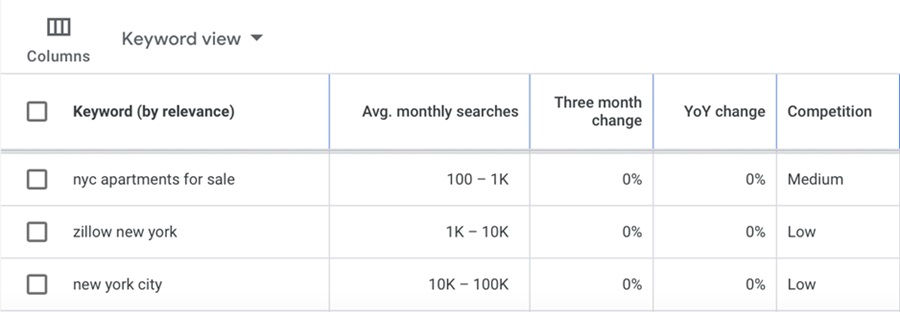Real Estate Local SEO: 4 Strategies for Agents
Local search optimization is your chance to appear at the top of local results. This means higher visibility, greater trust, more clicks, and, respectively, more potential clients.
But how do you use it to your benefit?
Currently, we know the top 4 tactics for local SEO for real estate agents:
• How to find and use SEO keywords for realtors.
• How to build local citations.
• How to craft content that converts.
• And how to manage your online reputation.
Read on to master the art of SEO for estate agents with us!
What Is Local SEO?
It’s a search engine optimization (SEO) tactic aimed at enhancing a business's visibility, traffic, and brand recognition in local search. The primary goal is to reach your target audience in a specific area.
Key Local Ranking Factors
• Google My Business - A free online directory that enables businesses to create, optimize, and manage their profiles to appear in Google and Maps for local intent search.
• Local citations - Citations are mentions of your business on the web. They can be structured - the ones that are found in listings of local businesses (i.e. on platforms like TripAdvisor, Yelp, etc.), or unstructured - that appear in news sites, blogs, etc.
• Location-based keywords - Location keywords are search queries bound to a specific area, for example, real estate [city name].
Leveraging Location-Based Keywords
Local keyword research is the process of finding relevant search queries that align with your business and services and a specific location. An easy way to handle it is to use specialized SEO tools, for example, Google Ads.
In your Google Ads account, you will find a convenient Keyword Planner tool that lets you identify dozens of keywords based on your product or service type and filter them to specific languages and geographical areas.
Select the ones that suit you the most, based on relevance, volume, and competition. To get the best outcomes, look for queries that have high search volume, yet low competition - such keywords will offer you more opportunities to rank high.

Source: Google Ads
After doing some research, make a list of the most suitable queries and use them to optimize your site, content, etc. Here are some simple tactics that should help:
• Integrate keywords into your business description in the GMB profile.
• Optimize existing content for new keywords.
• Integrate queries in your property descriptions.
• Make sure to put location-based queries into your headings, URLs, meta tags and descriptions, and image alt text for maximum impact.
• Create fresh content specifically for these keywords.
• Most importantly, create dedicated landing pages for targeted queries. This trick can help you expand your visibility and grow your conversion rates. Besides, it can help you cover multiple areas where your business operates (e.g. if you operate in New York, you can craft separate landing pages targeting prospects from Brooklyn, Manhattan, etc.) to broaden your outreach.
Pro Tip: Even if you are completely new to SEO for estate agents, don’t do it out of a lucky guess. After you research relevant SEO keywords and integrate them into your content, start tracking the outcomes regularly. Leverage a handy Keyword Rank Checker on the Ninjareports.com platform to gain the most in-depth and up-to-date insights into your site’s ranking, traffic, and search visibility. Then, use this data to refine your tactic and get better results.
Building Local Citations
Citations are often built through platforms like online directories and review sites that are time-tested and rank high in search engines. Gaining greater visibility through such high-authority platforms can increase your trust indicator and rankings as well.
Here's how to improve local SEO rankings with the help of citations:
1. Submit your data to the main data aggregators. Currently, in the US, these are Express Update, Neustar Localeze, and Factual. Additionally, create listings on other core sites, such as Yelp, Facebook, Apple Maps, etc. To level up your real estate SEO, it's also great to create listings in industry-specific data aggregators, for example, the National Association of Realtors directory.
2. Check and update the key data across your listings.
3. Create and foster your relationships with journalists, influencers, organizations, bloggers, and other partners who can cite you on their sites and help you pursue unstructured citations. A secret hack to this is to use HARO (Help A Reporter Out). This platform connects journalists with potential sources for their stories. On it, you can answer journalists’ questions and make quotes to get featured in their articles.

Photo by cottonbro studio
Creating High-Quality, Localized Content
Content is a crucial part of local search optimization. It’s what makes you visible to search engines and potential customers alike.
To generate outstanding content for your SEO strategy, you must research your audience first. You must acknowledge the cultural and area-specific nuances that might be affecting your prospects' buying decisions. If you use these specs in your content, it should resonate with your audience more.
Next, you must build a content plan with your ideal customer in mind. Some content ideas that you can use include:
• Neighborhood guides.
• Market reports.
• Community events, etc.
Be sure to integrate location keywords into your content but keep them sound natural and only include a few key queries per article to avoid keyword stuffing.
Pro Tip: If handling content creation sounds too complicated for you, consider using professional real estate SEO services. This tip can help you make up for a lack of search engine optimization skills and get tangible results faster.
Online Reviews and Testimonials
Consumer surveys reveal that a whopping 77% of consumers search for companies with some ratings and reviews, regardless of what kind of service or product they need. Reviews and testimonials serve as a powerful trust factor for your prospects, which is why you have to manage them carefully to beat the competition. Besides, the amount and nature of online testimonials also affect your SEO ranking.
Luckily, there are many ways to encourage your clients to leave positive reviews for you:
• Build exceptional customer relationships.
• Make calls to action for testimonials on your site to make the process simpler for your clients.
• Provide opportunities to leave reviews across different mediums, such as Google, Yelp, Facebook, and others to let every client pick a convenient option.
• Get active on social media and encourage your clients to tag you.
• Send follow-up emails.
• Effectively engage with existing testimonials, including negative ones.

Photo by Negative Space
Conclusion
Let’s recap the key real estate SEO tips shared above:
• Detect location-bound real estate keywords for search engine optimization and integrate them into your content.
• Build both structured and unstructured citations to ensure greater visibility.
• Craft high-quality content meant for your local audiences.
• Manage your online reputation via reviews and testimonials.
These localization tactics can significantly boost your real estate services’ SEO and expose you to a larger number of potential clients. Hence, if you are seeking to grow your business and boost revenues, be sure to try these tactics ASAP!






